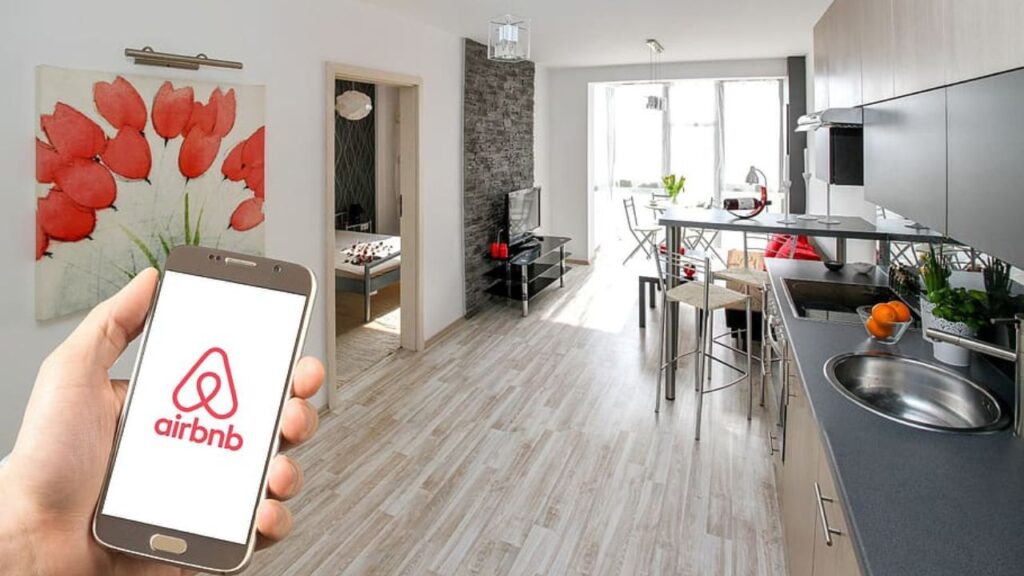Investing In Airbnb For Beginners: Investing in Airbnb for beginners involves purchasing properties in high-demand areas and listing them on the platform for short-term rentals.
If you’ve ever considered venturing into the world of short-term rental investing, Airbnb is an excellent platform to get started.
As a beginner, the idea of managing an Airbnb property may feel intimidating, but with the right approach, it can be a lucrative and rewarding investment.
In this guide, we’ll walk you through the essential steps to take, the things to consider, and the common mistakes to avoid as you start your journey into Airbnb investing.
Contents
Why Invest in Airbnb?
Before diving into the how-to, it’s important to understand why Airbnb is a popular choice for real estate investors.
Airbnb allows you to rent your property out for short stays, which can be more profitable than traditional long-term rentals, especially in tourist-heavy areas. Here’s why Airbnb investing is gaining traction:
-
Higher Earning Potential: With short-term rentals, you can charge premium rates compared to traditional rental properties, especially if your property is in a popular tourist destination.
-
Flexibility: Airbnb allows you to rent your property as often or as little as you want. You can choose when to rent it out, and even block dates for personal use, giving you more flexibility compared to long-term leases.
-
Diversified Income Stream: If you already own property, Airbnb offers a way to generate passive income with minimal extra effort. [Investing In Airbnb For Beginners]
Step-by-Step Guide to Investing in Airbnb
1. Research and Choose Your Market
The first step in Airbnb investing is choosing the right location. Not all cities or neighborhoods are ideal for short-term rentals.
You’ll want to focus on areas with high tourism, business travelers, or other attractions that draw short-term visitors. Here’s how you can go about it:
-
Look for High-Demand Areas: Research places that attract tourists, such as city centers, beach towns, or popular landmarks. [Investing In Airbnb For Beginners]
-
Check Local Regulations: Before buying a property, make sure you understand the local laws around short-term rentals. Many cities have specific rules regarding Airbnb rentals, such as licensing requirements, taxes, or restrictions on the number of days you can rent the property.
-
Assess Competition: Analyze the current Airbnb listings in the area. A saturated market with too many listings may make it harder to stand out, while a market with few listings may indicate low demand.
2. Evaluate the Property
Once you’ve identified a promising location, the next step is to find the right property. The property you choose should be able to attract guests and provide a comfortable experience. Keep these factors in mind:
-
Property Size and Layout: Aim for properties that are large enough to accommodate a range of guests, such as families or small groups, without being too large and expensive to maintain.
-
Appeal and Amenities: Properties with modern designs, unique features, and desirable amenities (such as a hot tub, pool, or great views) tend to perform well on Airbnb.
-
Condition and Upkeep: Choose a property that requires minimal renovations. You’ll want to invest in properties that are move-in ready or need only minor cosmetic improvements to get them ready for guests.
3. Calculate Your Investment Costs
Airbnb investing requires upfront costs and ongoing maintenance expenses, so it’s important to assess your potential return on investment (ROI). Some of the key costs include:
-
Property Purchase Price: Depending on the location, the cost of the property can vary significantly.
-
Renovation and Furnishing: If the property needs updates or furnishings, factor in the costs of making it guest-ready.
-
Airbnb Host Fees: Airbnb charges a service fee of 3% for every booking, which should be factored into your pricing. [Investing In Airbnb For Beginners]
-
Cleaning and Maintenance Costs: Regular cleaning and property upkeep are necessary for maintaining high guest ratings and repeat business.
Estimate your monthly income based on average rental rates in your area and subtract the estimated expenses. This will give you a better understanding of the profitability of your investment.
4. Create an Attractive Listing
Once your property is ready, it’s time to create your Airbnb listing. Your listing is your primary marketing tool, so make sure it stands out. Here’s how you can create an enticing listing:
-
Write a Compelling Description: Highlight the key features of your property and emphasize what makes it unique. Be clear about amenities and any special features, like proximity to attractions or a well-equipped kitchen.
-
Take High-Quality Photos: Great photos can make or break your listing. Invest in professional photos or ensure your photos are high-quality, well-lit, and showcase the property from multiple angles.
-
Set the Right Price: Use Airbnb’s pricing tool to help you determine a competitive rate. Look at similar listings in your area to get an idea of what to charge. [Investing In Airbnb For Beginners]
-
Update Availability: Be proactive about blocking off dates when the property isn’t available and keep your calendar up-to-date.
5. Manage Your Property Efficiently
Managing an Airbnb property can take a considerable amount of time and effort, especially when you’re first starting. However, there are tools and strategies to make the process smoother:
-
Automate Communication: Use tools to automate guest communication, such as pre-written messages for booking confirmations, check-in instructions, and house rules.
-
Hiring Help: Consider hiring a property management company or cleaning service to handle cleaning, check-ins, and check-outs, especially if you plan to rent out multiple properties.
-
Optimize Your Listings: Regularly update your listing to keep it fresh and competitive. Respond to guest reviews promptly, as this helps improve your rating. [Investing In Airbnb For Beginners]
6. Monitor Performance and Adjust
After you’ve started renting your property, it’s important to track your performance. Monitor guest reviews, occupancy rates, and profitability.
If something isn’t working, don’t be afraid to make adjustments. For example, if you’re not getting bookings, you may want to revise your pricing, improve your listing description, or upgrade your amenities.
Common Mistakes to Avoid
-
Ignoring Local Regulations: Always check the local regulations regarding short-term rentals. Some cities have restrictions or bans on Airbnb properties, and fines can be steep.
-
Underestimating Maintenance Costs: Don’t forget about the ongoing costs of maintaining your property. Regular cleaning, minor repairs, and updates can add up quickly. [Investing In Airbnb For Beginners]
-
Setting the Wrong Price: Pricing too high can scare off potential guests, while pricing too low may not yield the returns you want. Do thorough research and adjust your rates accordingly.
-
Neglecting Guest Experience: Always prioritize your guests’ experience. Providing small touches like quality toiletries, clean towels, and local tips can lead to better reviews and repeat bookings.
See Also: Mortgage Note Investing For Beginners: A Comprehensive Guide
5 FAQs About Investing in Airbnb
1. How much money do I need to start investing in Airbnb?
The amount of money you need depends on the location and the property you want to invest in. Generally, you should have enough to cover the cost of the property, plus any renovations, furnishing, and upfront Airbnb fees.
2. Can I manage an Airbnb property remotely?
Yes, you can manage an Airbnb property remotely. Tools like automated messaging, smart locks for self-check-in, and remote property management services can make this possible.
3. How much can I make from an Airbnb property?
Your income will depend on the location, property size, occupancy rates, and pricing. On average, an Airbnb host can make anywhere from $500 to $5,000 per month, but this varies widely.
4. Do I need to buy a property to get started with Airbnb?
No, you can also start by renting a property (known as rental arbitrage) and listing it on Airbnb. However, this requires a solid understanding of the local market and agreements with the property owner.
5. How do I make my Airbnb listing stand out?
Focus on creating a high-quality listing with professional photos, an engaging description, and competitive pricing. Offer additional amenities like free Wi-Fi, parking, or local experiences to make your listing more appealing.
Conclusion: Investing In Airbnb For Beginners
Investing in Airbnb for beginners can be an exciting and profitable venture. By carefully researching the market, selecting the right property, and optimizing your listing, you can set yourself up for success.
Keep learning, stay adaptable, and continue refining your approach to maximize your investment’s potential. With dedication and smart strategies, your Airbnb investment could become a highly profitable source of income.

Kaiya Acosta recently finished studying finance. He has always wanted to create a blog about money. Now, he is making his dream real. Kaiya is from Texas, USA, and loves helping people learn how to manage their money better.

